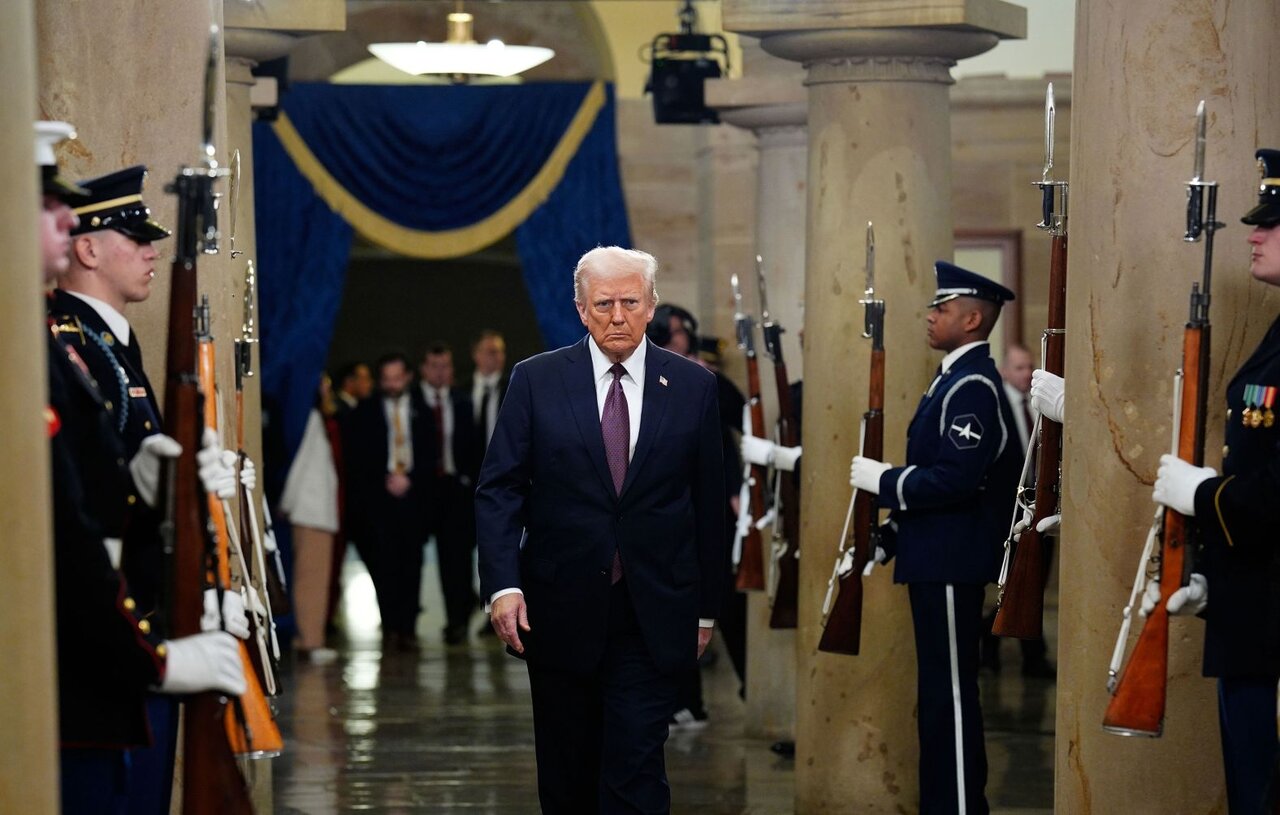Alwaght- Donald Trump was sworn in as the 47th president of the US on Monday. Alwaght discussed his policies at home and abroad and his approach towards Iran in the his new presidency term with Morteza Maki, an American affairs expert.
Following policies of first presidency with special focus on strict immigration policy
Maki opened his comments by stressing that Trump will continue to pursue his anti-immigration policies in his new term as president. He said that in his first day of office and the executive orders he issued on various issues, including domestic and foreign affairs, Trump somewhat showed the prospects of his second term. In the area of immigration, he tried to show that he would continue to pursue his first administration's anti-immigration policy by making it more difficult for immigrants to enter the US and deport immigrants from the country, and by issuing orders on citizenship. Concerning other domestic issues, Trump raised the issue of increasing trade tariffs and also talked about the economic problems of the US with China and Europe, which are exporters to his country.
Mr Maki described the consequences of Trump's presidency on foreign policy as massive, adding that the new president raised issues of the World Health Organization and exit from the Paris climate agreement.
He added that we must expect profound changes both in the domestic and foreign arenas of the US. Trump's return to presidency showed that he represents the socio-political current in American society, and we must witness extensive changes in the domestic and foreign stages. Ultimately, Trump will exert his own influence in various economic, political, social, and foreign spheres of the US, and these policies may have wider consequences in foreign policy. It should be taken into account that Trump's view of the US's allies, rivals, and enemies is different from that of previous American presidents. He is trying to pursue and secure the American interests and security with a different perspective, with the same economic and mercantilist logic that he has, different from the American structure.
Walk-back from 24-hour Ukraine peace promise
Pointing to the Trump's promise of ending Ukraine war within 24 hours should he became president, Mr Maki said that after comeback to the White House, Trump's opinion has somehow changed and he talked about a six-month term to end the war. This shows that support for Ukraine is a serious matter and it is uneasy to cut off this support, and it could have profound effects on the American approach to the NATO alliance and its reception of European and NATO allies. For this reason, we are witnessing a conservatism and caution in Trump's approach to Ukraine. In any case, Trump has postponed everything and made it conditional on his upcoming meeting with Putin, although the time for this meeting has not yet been announced, but Trump is trying to find a middle ground for reconciliation and a ceasefire between Ukraine and Russia through his personal relations with Putin and Zelensky. However, given the challenges and obstacles regarding the approach to Russia, this decision is not an easy one for Trump to simply announce and implement within 24 hours, and he will definitely leave this issue to his Republican party members for them to end the war with reflection, study, and a long-term vision.
Trump's opaque policy towards Iran
The American affairs expert pointed to the Trump's willingness to negotiate with Iran, saying that Trump and his orbit of Republicans' signals for negotiations with Iran before entering the White House were double-faced. On the one hand they voiced optimism about talks and on the other hand they threatened to use military option to stop Iran's peaceful nuclear program. But after Trump assumed the office, we saw a greater level of transparency. For example, the US Secretary of State Mark Rubio, despite his Iranophobic views, has spoken of dialogue. Trump has not yet clearly stated his positions on Iran, but his economic approach indicates that he is seeking the least cost and maximum benefit from the relationship with Iran.
Mr Maki further held that since Iran's approach over the past two months has been in favor of dialogue, adding that he believes that the clouds of threat are still overshadowing the negotiations and we need to wait and see what Trump's stances will be in the coming days. We should see some distance between Trump's stances and those of the Republican majority. Trump is a personality that tries to have a different view from the Republicans concerning approach to and relations with Iran. It seems, according to Maki, negotiations with Trump are easier than with his hardline orbit.



























